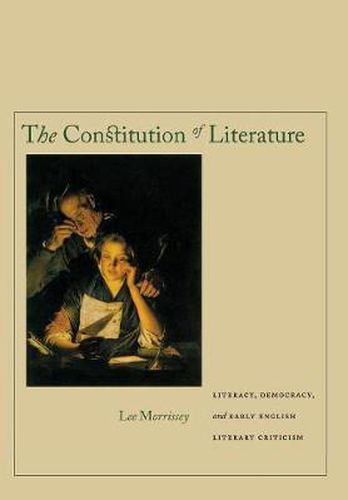Readings Newsletter
Become a Readings Member to make your shopping experience even easier.
Sign in or sign up for free!
You’re not far away from qualifying for FREE standard shipping within Australia
You’ve qualified for FREE standard shipping within Australia
The cart is loading…






The Constitution of Literature challenges the prevailing understanding of the relationship between literature and democracy during the seventeenth and eighteenth centuries, when both literature and democracy were acquiring their modern forms. Against the heroic story of criticism shaping the modern public sphere as recounted by Habermas and his followers, it explores how different resistances to democratized reading preoccupied the thinking of the major English literary critics of the time. By paying attention to how critics participated in a debate over theories of reading-its processes for acquiring meaning from the page, its psychological and social effects on individuals, and its diffusion across the population-this book offers a new understanding of the political history of early literary criticism.
$9.00 standard shipping within Australia
FREE standard shipping within Australia for orders over $100.00
Express & International shipping calculated at checkout
Stock availability can be subject to change without notice. We recommend calling the shop or contacting our online team to check availability of low stock items. Please see our Shopping Online page for more details.
The Constitution of Literature challenges the prevailing understanding of the relationship between literature and democracy during the seventeenth and eighteenth centuries, when both literature and democracy were acquiring their modern forms. Against the heroic story of criticism shaping the modern public sphere as recounted by Habermas and his followers, it explores how different resistances to democratized reading preoccupied the thinking of the major English literary critics of the time. By paying attention to how critics participated in a debate over theories of reading-its processes for acquiring meaning from the page, its psychological and social effects on individuals, and its diffusion across the population-this book offers a new understanding of the political history of early literary criticism.